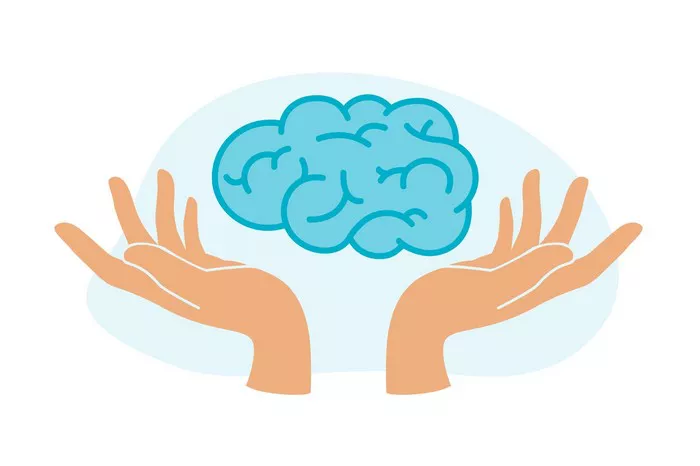Schizophrenia is a severe and complex psychiatric disorder that affects a person’s thinking, feeling, and behavior. It is characterized by distortions in thinking, perception, emotions, language, sense of self, and behavior. Commonly manifesting in late adolescence or early adulthood, schizophrenia can lead to significant social and occupational dysfunction. Early detection and treatment are crucial for improving the prognosis of the disease. This article explores three primary warning signs of schizophrenia, detailing their manifestations, implications for the individual’s health, and the importance of early intervention in the management of the disorder.
Understanding Schizophrenia: A Brief Overview
Before delving into the warning signs, it’s important to grasp what schizophrenia is and how it impacts individuals. Schizophrenia is typically a long-term condition that can lead to symptoms categorized as positive, negative, and cognitive. Positive symptoms include hallucinations and delusions, negative symptoms include withdrawal and apathy, and cognitive symptoms involve problems with thought processes and attention.
Hallucinations: A Major Red Flag
Defining Hallucinations in Schizophrenia
One of the most prominent warning signs of schizophrenia is the presence of hallucinations. Hallucinations are sensory experiences that appear real but are created by the mind. In schizophrenia, these are most commonly auditory but can also be visual, olfactory, or tactile.
Auditory Hallucinations: More Than Just Hearing Voices
Auditory hallucinations, the most common type in schizophrenia, typically involve hearing voices that other people do not hear. These voices can describe the person’s activities, carry on a conversation, argue, or even issue commands. Unlike the common misconception, not all auditory hallucinations are negative or commanding. However, their presence is highly indicative of schizophrenia, particularly when other symptoms are also evident.
Impact of Hallucinations on Behavior
Hallucinations can be extremely disturbing and can significantly impact an individual’s quality of life. They can lead to fear, confusion, and social withdrawal, and in severe cases, may prompt individuals to act in ways that are harmful to themselves or others, particularly if the voices command it.
Delusions: Strikingly False Beliefs
Identifying Delusions
Delusions, another primary warning sign of schizophrenia, are false beliefs that are not based in reality and are not shared by others in the person’s culture or subculture. These beliefs persist despite clear evidence contradicting them.
Types of Delusions Experienced in Schizophrenia
Delusions in schizophrenia can take many forms, but some of the most common include:
Persecutory Delusions: Belief that others, often a vague “they,” are out to get them.
Delusions of Reference: Belief that elements of the environment are directly related to them, such as a television broadcast or a song being specifically about or directed to them.
Grandiose Delusions: Belief that they have exceptional abilities, wealth, or fame.
Delusions of Control: Belief that their thoughts, feelings, or actions are being controlled by external forces.
The Destructive Nature of Delusions
Delusions can lead to bizarre behaviors, severely impacting the person’s ability to function socially or professionally. For instance, someone who believes they are under constant surveillance may go to extreme lengths to avoid being “watched,” such as covering up windows or avoiding technology.
Disorganized Thinking and Speech
Symptoms of Disorganized Thinking
Disorganized thinking, often inferred from disorganized speech, is a critical warning sign of schizophrenia. It manifests as ineffective communication and impaired ability to think logically. This may be observed as the person hopping from one topic to another in conversation (derailment) or answering questions in a tangentially related or completely unrelated manner.
Observing Disorganized Speech Patterns
Patterns of disorganized speech include:
Loose Associations: Rapidly shifting from topic to topic, with no logical connection between thoughts.
Neologisms: Making up words that only have meaning to them.
Perseveration: Repeating words and statements over and over again.
Clanging: Speaking in rhymes or using words that sound similar but have no logical connection.
Impact on Daily Functioning
Disorganized thinking and speech significantly affect communication and can hinder the individual’s ability to maintain social relationships and function effectively in work or other daily activities. It can also contribute to a chaotic lifestyle and poor decision-making, further complicating the course of the disorder.
The Importance of Early Intervention
Benefits of Recognizing Early Signs
Early detection and intervention in schizophrenia can significantly alter the course of the disease. By intervening at the first signs, such as subtle changes in thought, perception, or behavior, the severity of the full-blown disorder may be reduced, and some hospitalizations can be prevented.
Approaches to Early Intervention
Effective early intervention strategies may include:
Pharmacological Treatment: Using antipsychotic medications to reduce or manage symptoms.
Psychosocial Treatments: Engaging in therapy sessions, including cognitive behavioral therapy, which can help in coping with symptoms and improving social skills.
Support Systems: Establishing strong support systems involving family, friends, and healthcare providers to ensure comprehensive care and support.
Conclusion: Navigating the Challenges of Schizophrenia
Recognizing the warning signs of schizophrenia—hallucinations, delusions, and disorganized thinking—is crucial for timely intervention and management. Understanding these signs helps not only healthcare professionals in making accurate diagnoses but also assists families and caregivers in seeking appropriate help at the right time. Early diagnosis and treatment improve outcomes significantly, highlighting the importance of awareness and education on this complex mental health condition. With ongoing research and improved therapeutic strategies, the future holds promise for those affected by schizophrenia, aiming for better management and hopefully, eventual recovery.
[inline_related_posts title=”You Might Be Interested In” title_align=”left” style=”list” number=”6″ align=”none” ids=”7743,7740,7686″ by=”categories” orderby=”rand” order=”DESC” hide_thumb=”no” thumb_right=”no” views=”no” date=”yes” grid_columns=”2″ post_type=”” tax=””]

































